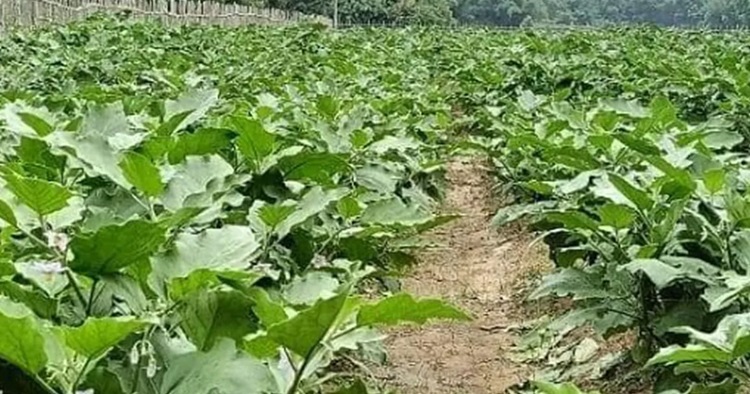Early winter vegetable cultivation gains momentum across Khulna division


Farmers across four districts in the Khulna division have started cultivating winter vegetables for the Rabi season, with the Department of Agricultural Extension (DAE), setting a target to bring 30,365 hectares of land under cultivation this year.
According to official data, 15.2 percent of the targeted land in Khulna, Bagerhat, Narail and Satkhira districts has already been cultivated, as farmers remain busy sowing seeds, applying pesticides and preparing their fields.
Aiming to strengthen the region’s agricultural base and boost economic prosperity, both the government and local farmers are working together to ensure year-round agricultural production.
Winter vegetable cultivation has become a key part of this initiative, with efforts underway in Khulna, Bagerhat, Satkhira and Narail to increase yields and improve the livelihoods of local farmers.
Fields across the region are now being planted with a wide range of crops, including cauliflower, cabbage, broccoli, eggplant, sweet pumpkin, bottle gourd, bean, sponge gourd, red spinach, white spinach (ghee-kanchan), regular spinach and carrots.
Officials are optimistic that if no major natural calamities occur during the season, the region will achieve its cultivation targets and contribute significantly to local economic development.
According to DAE sources, Khulna District has set a target of bringing 8,335 hectares under winter vegetable cultivation, with 465 hectares (5.6%) already cultivated.
Bagerhat District has made the most progress so far, cultivating 3,122 hectares (34%) of its 9,200-hectare target.
In Satkhira, cultivation has covered 822 hectares (8.5%) of the 9,690-hectare target, while Narail has achieved 6.8 percent progress, with 215 hectares cultivated out of 3,140 hectares planned.
Local farmers have expressed both optimism and concern as they enter the new season.
“People are quite interested in winter vegetables. That’s why we’ve started cultivating early,” said Md Saiful, a farmer.
“It’s been about one and a half weeks since we sowed the seeds. I hope to get a good price for early vegetables when they reach the market," he said.
Another farmer, Hamidul, shared his frustration over unstable prices.
“I’ve planted cauliflower and cabbage, but after harvesting, market prices often fall. When we don’t get fair prices, our interest in farming decreases,” he said.
Salam, a fish farmer, mentioned that he has been cultivating pumpkin, bean and bottle gourd on the banks of his fish enclosures during winter for several years.
“Last year I got good prices, and I hope this year will be just as profitable,” he said.
Md Amirul Islam, Sub-Assistant Agriculture Officer of Kalia Upazila, said early winter vegetables are being cultivated on 20 hectares in Dhusahati, Bil Bouch and Boladanga under Salamabad Union.
"Farmers are now busy with sowing, pesticide application and other preparations. We’re providing them with continuous guidance,” he said.
Md Kishore Ahmed, Agriculture Officer of Dighalia Upazila, said cultivation has already begun on 315 hectares under the current season’s plan, with 200 hectares completed.
“Alongside flatlands, we’ve emphasised vegetable cultivation on the banks of fish enclosures as well. Seeds and fertilisers have been distributed as incentives. Barring any major natural calamity, we expect to achieve our target, as we did last year,” he said.
Md Rafiqul Islam, Additional Director of the Department of Agricultural Extension (DAE), Khulna region, said, “Our goal is to make Khulna a more agriculturally driven and economically prosperous region. That’s why winter vegetable cultivation is being expanded during the Rabi season.”
Rafiqul said special emphasis has been placed on cultivating vegetables on the banks of fish enclosures, where pesticide use is minimal, making the produce safer for consumption.
“Both farmers and consumers benefit from this method, and cultivation progress is improving daily. We are hopeful that if no major disasters strike, we’ll fully meet our winter vegetable targets and contribute to the region’s economic development,” he added.
